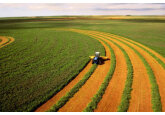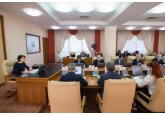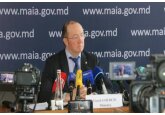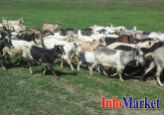
Farmers in Moldova will receive emergency assistance from the FAO to mitigate the negative consequences of the Ukrainian conflict for the agricultural sector.
This was announced by the Ministry of Agriculture, noting that, in particular, at the request of the Ministry of Agriculture and Food Industry, the Food and Agriculture Organization of the United Nations (FAO) will implement an emergency assistance project to support small farmers in Moldova. The project provides for an initial investment of $500,000, with further support to be increased through collaboration with other international donors. Minister of Agriculture and Food Industry Viorel Gherciu stressed that the country's agricultural sector is currently facing numerous challenges related to the consequences of the war in Ukraine, rising energy prices, fertilizers and adverse weather conditions, with more than 70% of small farmers vulnerable to these shocks. "While the government has mobilized domestic and foreign support, it is unable to support all farmers in getting more affordable prices for fertilizer, seeds and fuel needed for the spring farming campaign," he said. Viorel Gherciu said that the Ministry of Agriculture appreciates the FAO's support and initiative to mobilize international support for Moldovan farmers, thereby continuing the organization's efforts to develop a sustainable food system in our country. It is planned that with FAO support, small farmers in Moldova will receive seeds for mid- and late spring sowing (corn, sunflower, soybeans), and authorized mini-farms and vulnerable households in rural areas will receive assistance in the form of concentrated feed for animal feed. FAO will also assist the Ministry of Agriculture with impact assessment and crisis response planning. The intervention is aimed at a nationwide impact. “FAO is closely monitoring the situation in the country, and we are working with the Moldovan government to help reduce the hardships that the population in rural areas is now facing. We aim to increase the resilience of the agri-food sector to threats and crises in order to anticipate potential risks to food security at the national level,” said FAO Resident Representative in Moldova Raimund Jehle. He noted that, given the growing dependence of the agricultural sector on imported seeds, fertilizers and agrochemicals, it is necessary to support farmers in facilitating access to inputs and in strengthening national domestic production capacity. It was emphasized that the current crisis is creating unprecedented challenges for Moldovan farmers, affecting access to neighboring commodity markets, leading to shortages of basic agricultural raw materials and disrupting most economic transit routes. Also, the shock felt by Moldovan farmers is exacerbated by the rapid growth and high volatility of prices for oil products and an almost 3-fold increase in prices for fertilizers, which affects spring agricultural work. In this regard, the goal of the FAO project is to support the agricultural sector in the long term and prepare farmers for the next agricultural season. In parallel, FAO is implementing in Moldova, in partnership with the Ministry of Agriculture, ten other technical assistance projects worth $3.5 million to strengthen agriculture that is resilient to external challenges, including those caused by climate change.// 08.04.2022 — InfoMarket







